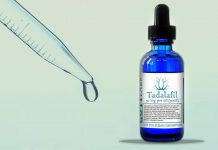Like men, women do experience fluctuations in sexual desire and arousal throughout life. However, chronic loss of interest in sex, or difficulty in getting aroused, could indicate female sexual interest/arousal disorder (FSIAD).
A woman with FSIAD may experience loss of sexual desire (libido) and a lack of physical arousal or even both.
Like erectile dysfunction (ED) in men, FSIAD can be distressing and affect a woman’s self-esteem, relationships, and overall well-being.
“FSIAD describes a loss or significant reduction in sexual desire or physical arousal in females,” according to Medical News Today. “It is a relatively new term that first appeared in the Diagnostic and Statistical Manual of Mental Health Disorders (DSM-5).”
FSIAD is further divided into hypoactive sexual desire disorder (HSDD), which describes a lack of interest in sex, and female sexual arousal disorder (FSAD), which means difficulty in getting aroused during sexual stimulation.
Previously, FSAD used to refer to painful coition (dyspareunia) due to lack of lubrication and swelling in the female genitals. However, experts argued that this is a flawed concept, as a lack of lubrication does not necessarily indicate FSAD.
Women with FSIAD have no interest in sex and have few or no thoughts about sex. They also have a decreased sexual arousal or pleasure during foreplay, with reduced or no sensation in the genitals.
FSIAD Treatment
Psychotherapy or sex therapy has been found effective in treating FSIAD. Talking with a psychotherapist or a counselor can help identify factors responsible for causing FSIAD in most women. They can help with learning skills for coping with stress and anxiety and can assist how to communicate with your partner.
Oral medications for FSIAD include Vyleesi (bremelanotide) and Addyi (flibanserin). Researchers are studying whether sildenafil (Viagra) could help women with sexual arousal disorders.
Hormonal therapy could help treat loss of libido in women going through menopause or who have hormone deficiencies. In some women, treating the underlying medical conditions, like heart disease or diabetes, which are the potential causes of sexual dysfunction, could help regain their sexual function.























